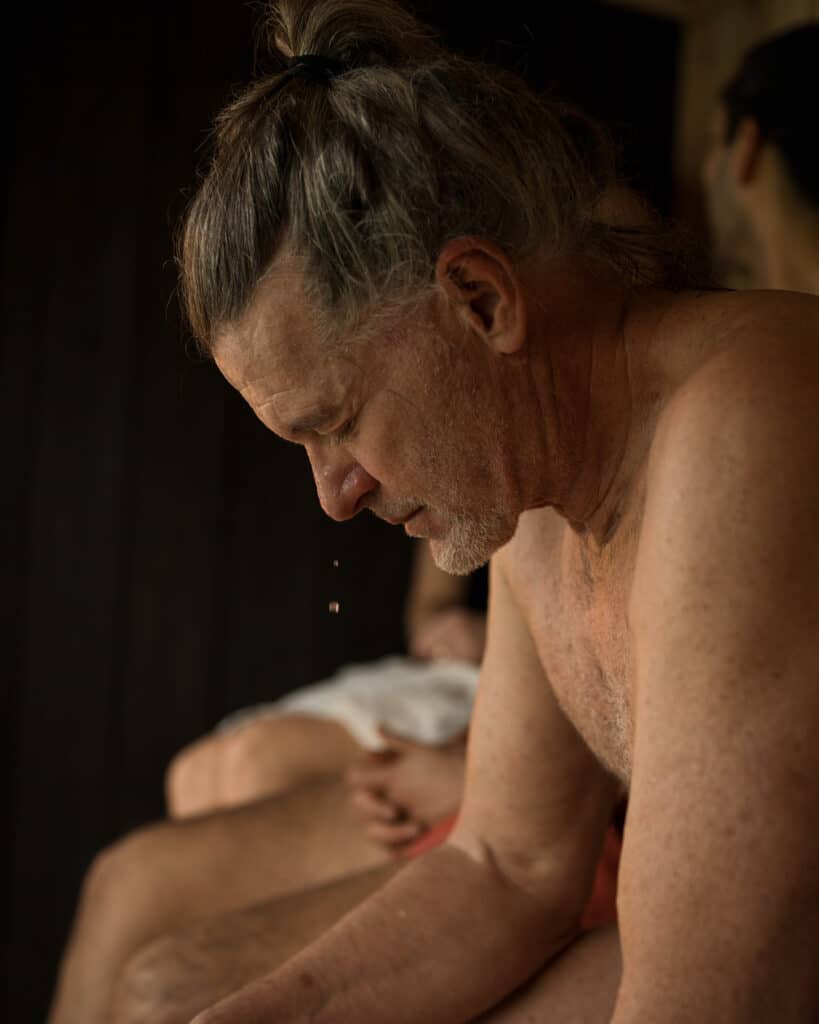In a world that has become increasingly fast paced and high pressure, it’s easy to get over-stressed and chronically fatigued. Not only are we facing a constant onslaught of information and news from technology 24/7, but political unrest, climate change, and a worldwide pandemic have greatly impacted the mental health of Americans. According to the CDC, “more than 1 in 5 US adults live with a mental illness.” Western medicine is often quick to point to pharmaceuticals as the answer to managing these conditions, but doctors and scientists are starting to ask another question…what about sauna?
What inspired this correlation? According to a recent article in Wired, “Depression runs hot. In the 1980s, psychiatrists began noticing that patients with depressive symptoms had higher body temperatures compared to people without, and that their body temperatures didn’t ebb and flow as much throughout the day. The more severe a patient’s depression, the higher their temperature tended to be.”
“Researchers have since noticed that when someone’s depression improves, their body temperature regularizes, ‘“no matter how their depression got better—electroconvulsive therapy, psychotherapy, antidepressants, whatever,”’ says Ashley Mason.”
For Ashley Mason, a lightbulb moment ensued.



Photos by: Jessica Steddom Photography
A Study Inspired by Sweat
With this in mind, Ashley Mason, a clinical psychologist and a team of researchers at UCSF, decided to dig a little deeper into this idea of intentionally adjusting body temperature to treat depression. In a recent study, they investigated the effects of combining cognitive behavioral therapy (CBT) with sauna sessions on individuals with major depressive disorder. Participants undergo either active sauna sessions, which elevate body temperature, or sham sessions, which do not, alongside their CBT sessions.
Earric Lee (dubbed the “sauna physiologist” due to his studies on sauna in Finland) shares how heat therapy as a complementary treatment may be more than one psychologist’s pipe dream. “Doses of extreme heat might have some sort of hacking or resetting effect on thermoregulation, which then changes mood. Sauna can kickstart the body’s “cool down” programming, Lee says. ‘“You fake it into thinking that it needs to lower its temperature much more,” he says. “So it will get there quickly.”’
The underlying hypothesis is that heat exposure may positively impact depression symptoms by stimulating anti-inflammatory processes, increasing the production of brain-derived neurotrophic factor (BDNF), and improving stress resilience. The study draws on previous research that links body temperature regulation to mood regulation and suggests that thermal therapy could activate pathways in the brain that enhance mental well-being.

Prescription: Sauna
Often, those with depression talk about how hard it can be to implement recommended lifestyle changes to help with their symptoms, like eating healthy and remaining active, due to the effects of the illness. Mason shares how sauna can help them overcome this hurdle. ‘“We know exercise works for depression,”’ Mason says. ‘“It’s just much easier to get someone to lay down in a sauna for a while than to go on an hourlong run—especially if they have depression.”’ Ditto for people with disabilities.”
While the study is still in its early stages, preliminary results indicate that sauna therapy might be a promising non-pharmacological intervention for depression. This aligns with other findings that show heat therapy can reduce depressive symptoms and improve overall mental health by creating a calming, stress-reducing environment. “Trying to move away from pharmacology is a good thing,” Earric Lee advised.
Cherished by cultures around the world, sauna and the likes thereof, have been proven in so many ways, to improve a person’s overall quality of life. We look forward to more studies in the future that strengthen this very message; sauna is (and always has been) medicine.
Ready to bring the ritual of sauna to your backyard? Get started.

